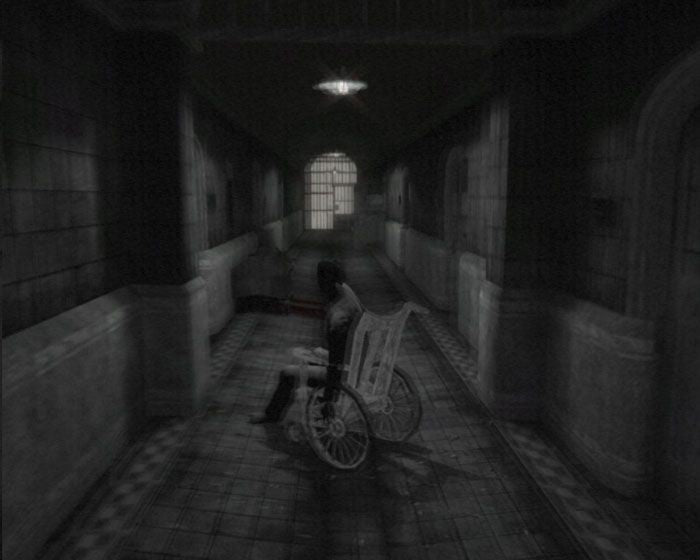
Sanity Check
My favorite mechanic from the Call of Cthulhu RPG is the sanity check. It is an incredibly simple yet compelling mechanic that largely defines the way the game works. It places the crunchier players in numbers driven jeopardy, models the source material in an effective way, and encourages wild and fun roleplaying. It is known as the trademark mechanic for Call of Cthulhu for a reason.
How does a sanity check work?
Your character in Call of Cthulhu is assigned a starting Sanity points value based on his attributes, and the amount of Cthulhu Mythos he knows/understands. When a player encounters something that is either Yog-Sothothery or would otherwise challenge their mental state, they have to make a sanity check.
How to calculate starting sanity
In Call of Cthulhu 7th edition (and I think most of the other editions I've read), your starting sanity is equal to your starting POW stat.
In Call of Cthulhu (if you didn't already know), most checks involve a d100. The combination will generate a number between 1-100 - this result is tested against a skill, if it's less, the check is a success. Otherwise, the check is a failure.
Each event in Call of Cthulhu that calls for a sanity check has a failure state and a success state. Sometimes, on a pass, you lose 0 sanity. Other times, you still lose sanity, but not as much as those who failed. This is normally written as 0/1d4 (where 0 is a pass and 1d4 is a failire) or 2/1d8 (where 2 is a pass and 1d8 is a failure.)
Also, 2/1d8, ouch.
Why is this so clever? Mainly, because it becomes easier and easier to fail a sanity check the more sanity checks you fail - the danger and excitement rachets up as you go.
The main problem that occurs with sanity checks in the games that I play is that the players will OFTEN try and talk their way out of having to roll one. An incident that gets discussed to this day in my gaming group involves a bridge disappearing in an underground cavern in while exploring Under the Pyramids. Making the group roll a sanity check in that scenario is evidence of my overbearing style - after all, having seen actual monsters, a bridge disappearing is hardly worth worrying about.
Sandy Peterson on the Sanity Mechanic
From a long piece that Call of Cthulhu fans should definitely read, Sandy Petersen talks about his own game:
As such I’d like to take full credit for inventing it. But I can’t, alas. The original concept was published in an article for the Sorcerer’s Apprentice magazine, where the authors (whose names are published in other interviews of mine) suggested that the player be given a Willpower stat or some such thing, and if he saw something too scary, he could take a Willpower check, and a bad enough failure could reduce it permanently. Reduce it permanently?! This was what I hung my hat on. I took the fundamental idea, called it Sanity, made it the focus of the game, and instead of, on rare occasions, lowering this stat, I had almost every encounter and event reduce one’s Sanity, till player-characters could become gibbering wrecks, or even turn into GM-controlled monsters.
It really is a stroke of ingenuity - the sanity mechanic is the fundamental idea behind one of the greatest RPGs of all time. Because it is unforgiving, challenging and fun - and apparently, as Petersen goes on to say, it was supposed to be even more unpleasant.
I knew I was on to something and kept refining the Sanity mechanic, in conjunction with the people at Chaosium, until it reached its current state. One big change was that I had concluded that Sanity should only diminish, and never increase, and the folks at Chaosium thought that was too negative even for a game about Cthulhu. They were right, I feel. And after all, Sanity still trends downwards, so I got my way in the end. If anything it’s more agonizing for the players this way, because they are fooled into thinking they can work their Sanity back up. Ha ha.
How often do players really regain sanity anyways?
An enduring design
The sanity check is great for creating tense gameplay. It is also great for two other reasons - firstly, it causes players to indulge in some wacky roleplaying. It is compulsory for players to "go insane" when losing sanity.
Many players do not love to role play extravagantly, but there is something about this rule that brings out the amateur dramatics. Many people's most fond memories of Call of Cthulhu are related to the madness of themselves or their fellows.
The other is that the unforgiving descent into madness brought on by repeated exposure to the horrors of the world is one of the most "Lovecraftian" concepts to make it into the final game.
Insanity for fun
I don't at all want to wade into a debate about whether or not it is appropriate to use sanity as a game mechanic. Gut feeling is that it is borderline not ok to model "real-world" mental health conditions in a game setting. However, I would argue that is not what games like Call of Cthulhu is doing.
It's modeling a very specific fictional trope (see: the title of the game), and I think that sticking to that trope is probably fine. That's what I tell myself anyways. The name "sanity" is poorly chosen, maybe?
It's something to consider if you are bringing Call of Cthulhu to the table for the first time, and something each group needs to be aware of.
Also, Call of Cthulhu and games like it also often call for "sanity checks" when witnessing acts of violence, even for performing them. I love consequences for player actions within a role playing game. Some might say that consequences for player actions are all there is to a role playing game.
In the comments, tell me about the most fun you've had, playing an insane character, or demanding sanity checks from your players.
Further reading
The complete sanity rules are provided by Chaosium for the current edition of Call of Cthulhu, as well as a helpful FAQ which touches on some of the themes I've discussed above.
